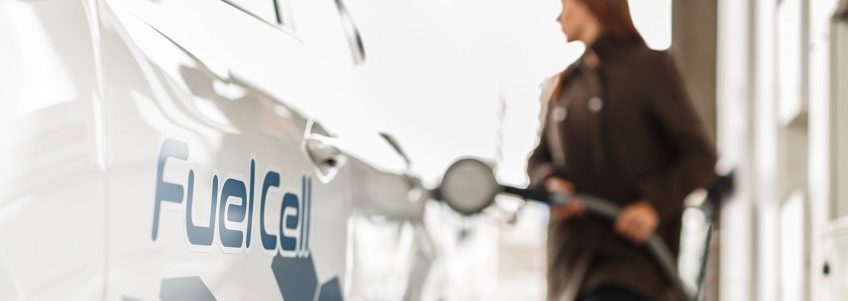A total of 3.1 million euros of NIP funding to put 223 fuel cell cars on the roads Infrastructure expansion: 20 more hydrogen refuelling stations thanks to 20.5 million euros in funding 5 million euros for uninterruptible emergency power supply for emergency services digital radio (BOS – “Behörden und Organisationen mit Sicherheitsaufgaben”) Close to an additional 53 million euros in the BMVI’s budget for sustainable drives in rail transport
Berlin, 4 December 2018 – The Federal Ministry of Transport and Digital Infrastructure (BMVI – Bundesministerium für Verkehr und digitale Infrastruktur) has approved funding applications totalling more than 3.1 million euros for the procurement of electric vehicles with fuel cells. The funds come from the National Innovation Programme Hydrogen and Fuel Cell Technology NIP 2. It will enablw the procurement of a total of 223 fuel cell vehicles. In addition, infrastructure funding will also continue: More than 20.5 million euros from the funding programme will be used to set up 20 hydrogen refuelling stations and thereby make emission-free mobility with hydrogen more attractive.
The NIP also provided funding for the states of Baden-Württemberg, Bavaria, Brandenburg, Hesse and Saxony (district of Meissen). As part of a call for funding in NIP 2 for market activation, 5 million euros were approved for the deployment of fuel cells for the reliable, uninterruptible emergency power supply of the digital radio for the emergency services (BOS – “Behörden und Organisationen mit Sicherheitsaufgaben”). This funding will help to achieve an order volume of approximately 28 million euros for 500 fuel cells in the area of BOS digital radio systems.
Good news for emission-free rail transport: the budget of the Federal Ministry of Transport and Digital Infrastructure (BMVI) will provide 52.7 million euros more in funding support until 2022 for sustainable drives in rail transport. Dr. Klaus Bonhoff, Managing Director of NOW GmbH: “In 2018, the world’s first Coradia iLint fuel cell train was sent into passenger service and Bombardier presented the first Talent 3 battery train. The development of the trains was considerably supported by the funding of the BMVI. The additional funding of almost 53 million euros for alternative drive systems will bring us a decisive step closer to zero-emission transport on all non-electrified rail lines.”
In addition to the National Innovation Programme Hydrogen and Fuel Cell Technology, NOW GmbH also coordinates the funding programmes for local electric mobility (Elektromobilität vor Ort), charging infrastructure for electric vehicles in Germany and also supports the federal government’s mobility and fuel strategy (MKS – Mobilitäts- und Kraftstoffstrategie) as a central platform for shaping the energy transition in transport. The BMVI budget foresees consistently high funding for these successful programmes over the coming years.


